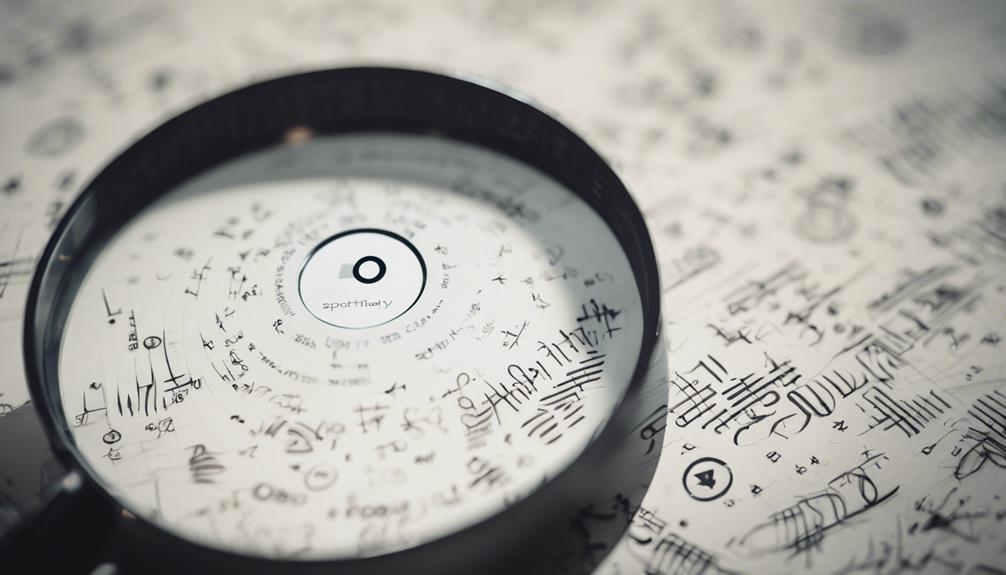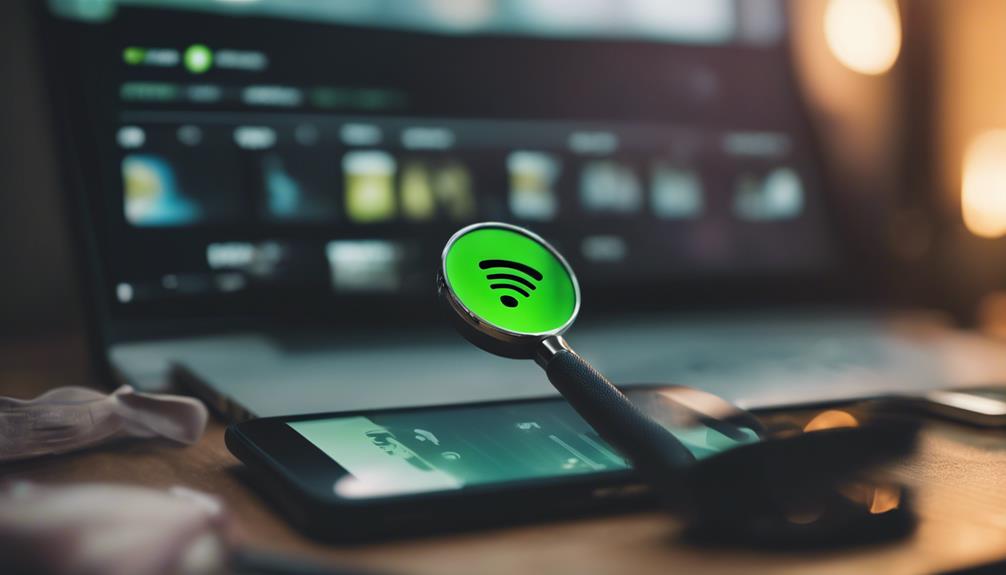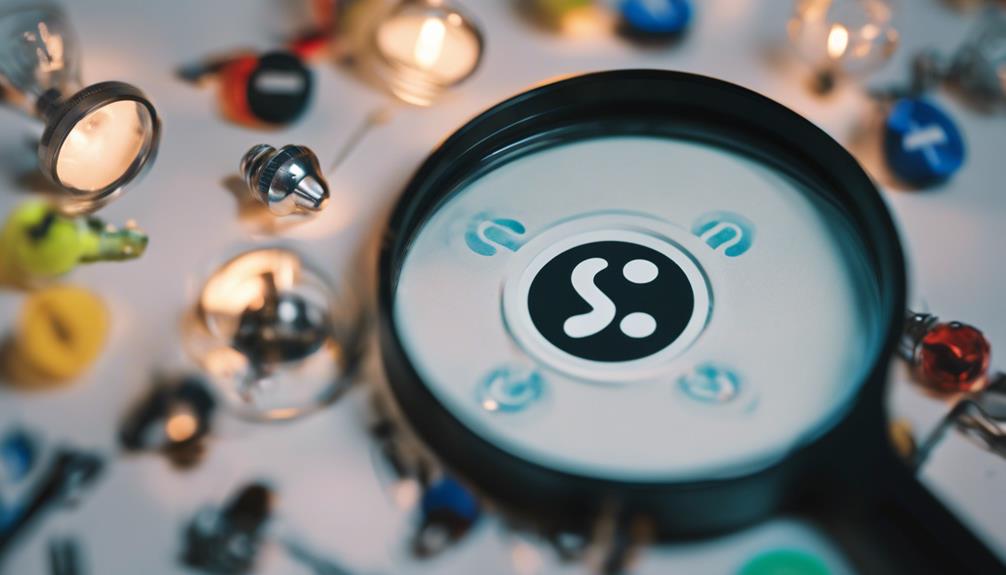
Are plays on Spotify accurate?
Yes, Spotify plays are generally accurate. Spotify uses sophisticated algorithms and real-time data analysis to track song plays, down to the minute details like play duration, skips, and replays.
Key Takeaways
- Spotify employs algorithms for accurate play tracking, analyzing play duration, skips, and replays in real-time.
- Efforts to maintain accuracy include detecting suspicious streaming patterns and collaborating with artists to prevent stream hijacking.
- A song is considered played on Spotify if it’s listened to for at least 30 seconds, even if it’s not finished.
- Not all plays generate the same royalties for artists, as factors such as the artist’s home country and agreements with labels influence payouts.
Understanding Spotify’s Play Count

To truly grasp the mechanics behind Spotify’s play count, it’s crucial to delve into the intricate algorithms and data-driven processes that the platform employs.
You see, Spotify doesn’t simply count plays. Instead, it delves into the depths of play distribution and royalty calculations, leveraging advanced data analytics to guarantee accuracy and fairness.
Play distribution is fundamentally how plays are dispersed among tracks. Spotify’s algorithm considers numerous factors, like user behavior and song popularity, to distribute plays efficiently.
It’s a dynamic system that rewards innovation and quality, keeping the platform vibrant and fresh.
Now, let’s not forget about royalty calculations. They’re not as straightforward as you might think. Spotify doesn’t just divide the total revenue by the total number of plays.
Instead, the platform uses a pro-rata approach, meaning royalties are calculated based on each track’s proportion of total plays. It’s a process that demands constant data crunching and immense precision.
How Spotify Tracks Plays
Diving into the specifics, you might wonder how Spotify accurately tracks each play on its platform. It’s all about leveraging play metrics and streaming algorithms. Whenever you hit ‘play’, Spotify’s system immediately logs that action. This data is then compiled and processed through their sophisticated algorithms.
| Action | Data Collection | Processing |
|---|---|---|
| Play Button Clicked | Time, Song, User | Logged Instantly |
| Song Played | Duration, Skips, Replays | Analyzed in Real-time |
| User Behavior | Preferences, Playlists, Trends | Used to Enhance Algorithms |
Spotify’s system is designed to be both responsive and accurate, providing real-time data for artists and users alike. But it’s not just about the number of plays. The system also collects data on user behavior, such as the number of skips or replays, and the duration of each play. This additional data is factored into Spotify’s streaming algorithms, allowing the platform to constantly enhance its understanding of user preferences and trends.
In essence, Spotify uses a combination of play metrics and streaming algorithms to guarantee the accuracy of play count. This innovative approach is what sets Spotify apart in the world of music streaming.
Factors Influencing Play Accuracy

Now, while Spotify’s system is highly intricate and accurate, there are several factors that can influence the precision of play tracking. Two of these key factors are play manipulation and stream hijacking.
Play manipulation refers to tactics used to artificially inflate the number of plays a track receives. This could include repeated plays from a single user or group, potentially skewing the data. These tactics can make a track seem more popular than it actually is, providing a distorted view of its true popularity.
Stream hijacking, on the other hand, involves intercepting a user’s stream to insert unauthorized plays. This not only disorients the listener but also distorts the play count. It’s akin to a pirate taking over a ship’s steering wheel, leading it astray from its intended course.
Both these factors can notably impact the precision of Spotify’s play count. Spotify’s algorithms are designed to handle these manipulations, but like any system, they’re not infallible.
To confirm accuracy, constant innovation is required. By staying ahead of these deceptive tactics, Spotify can continue to provide an accurate reflection of a track’s true popularity.
The Role of Bots and Fake Streams
In the digital music landscape, you’ll find that bots and fake streams play a substantial role in distorting Spotify’s play counts, consequently affecting the authenticity of track popularity. This stream manipulation is driven by the Bot’s Impact and is often used to artificially inflate the popularity of certain tracks.
Artificial Inflation: Bots can generate thousands of streams for a song, artificially inflating its popularity. This creates a distorted perception of the track’s actual popularity and can mislead users regarding its genuine appeal.
Data Skewing: The use of bots can significantly skew Spotify’s data. This data influences Spotify’s recommendation algorithms, creating a ripple effect that extends beyond the manipulated track.
Monetary Impact: Boosted streams can translate into higher royalty payments. This fraudulent activity not only undermines the fairness of the platform but also impacts the financial distribution among artists.
These elements highlight the substantial role bots play in the Spotify stream counts.
These practices not only undermine the authenticity and reliability of Spotify’s data but also pose significant challenges for the platform to maintain its credibility in the ever-evolving digital music landscape.
Spotify’s Efforts to Ensure Accuracy

You might wonder what Spotify is doing to maintain the accuracy of stream counts and combat the issue of bot activity and fake streams. Well, let’s explore the innovative methods that Spotify uses to safeguard data integrity:
- Critical Spotify algorithms: Spotify has developed intricate algorithms that can detect suspicious streaming patterns. These algorithms are continuously updated and refined to stay ahead of the latest bot technologies.
- Delve into verification: Besides automated systems, Spotify also employs a team of data analysts. They manually inspect accounts suspected of bot activity, providing an extra layer of security.
- Collaboration with artists and record labels: Spotify works closely with artists and record labels to monitor streaming data. This collaboration aids in identifying and eliminating fraudulent streams swiftly.
These efforts highlight Spotify’s dedication to creating a fair and accurate platform. However, it’s important to remember that no system is foolproof.
As technology advances, so do methods of deception. As such, Spotify’s ongoing commitment to updating its detection systems and refining its data integrity measures is vital in maintaining the accuracy of its play counts. By doing so, it ensures that each and every stream truly counts.
Debunking Common Misconceptions About Spotify Plays

Despite the widespread popularity of Spotify, there exist several misconceptions about how Spotify plays are counted, which we’ll now dissect and debunk for better clarity and understanding.
First, you might think that all plays are equal, but the streaming algorithms Spotify uses are more sophisticated. They account for factors such as the listener’s location and whether the play was intentional or automatic. This guarantees that the play count accurately reflects genuine user engagement, rather than being artificially inflated.
Second, there’s a misconception that artist royalties are determined solely by the number of plays. While plays are a factor, they’re not the only one. Spotify also considers the artist’s home country and the individual agreement with the artist or their label. So, not all plays generate the same amount of royalties.
Lastly, many believe that skipping songs doesn’t count as a play. However, Spotify counts a play after 30 seconds, whether the song is finished or not.

